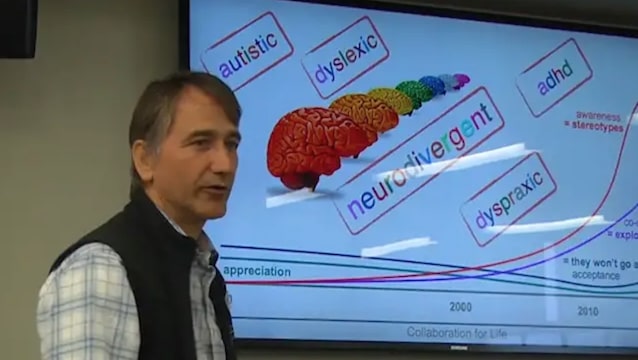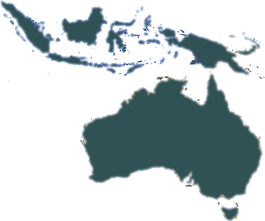In October 2018, Jorn Bettin gave a talk entitled Neurodiversity: The Core of Creativity for a Grand Round session at the Bay of Plenty District Health Board. The neurodiversity movement asserts that neurological differences should be recognised and respected as a social category on a par with gender, ethnicity, sexual orientation, or disability status. It frames autism, bipolar disorder and other neurotypes as a natural human variation rather than a pathology or disorder, and its advocates believe them to be authentic forms of human diversity and valuable sources of human talents and innovative potential. The session provided an introduction to the topic of neurodiversity based on current scientific evidence and first-hand experience from an autistic perspective.
Key points:
- No serious discussion on the topic of innovation, learning, and collaboration can afford to ignore the relevance of neurodiversity. In particular autistic people learn and play differently.
- Discrimination against autists is comparable to the level of discrimination against homosexuals 50 years ago. The pathologisation of autism has led to what some critical researchers refer to as the autism industrial complex.
- Autists communicate and enjoy themselves by sharing information and knowledge, and not by negotiating social status. Over the last two decades it has become increasingly clear that autistic cognitive lenses are apparently an essential element in all human societies, especially in the context of innovation and in terms of reducing spurious complexity in human culture.
- Today autists are still advised from a young age to mimic neurotypical behaviour. It is time to liberate autism from the pathology paradigm. This can only be achieved if autists take ownership of the definition of autism and share their experience of human cultures through an autistic lens from a first-hand perspective.
This presentation will enable you to:
- See value and creative potential where mainstream society currently perceives and attempts to contain or neutralise pathological behaviour
- Understand the essential role of neurodiversity as a driver of innovation
- Appreciate the unique portfolio of strengths that autists bring to any collaborative endeavour















